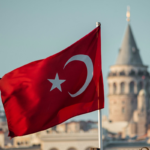Holidays bring people together in joyful celebration, honoring rich traditions and historical events that shape cultures worldwide. While the way we celebrate may vary, the essence of these holidays often reflects shared human experiences and values. Here, we explore 15 of the most famous holidays, their origins, and what they mean to people around the globe.
1. New Year’s Day
Origin: The celebration of New Year’s Day dates back to ancient civilizations, including the Babylonians who celebrated the spring equinox in March. Today, it is predominantly celebrated on January 1st due to the Gregorian calendar’s influence, brought into practice by Pope Gregory XIII in the 16th century.
2. Christmas
Origin: Christmas commemorates the birth of Jesus Christ and is celebrated on December 25th. Its origins can be traced to early Christian communities and was later intertwined with pagan festivals such as Yule, celebrating the winter solstice. Traditional customs include the exchange of gifts, decorating Christmas trees, and family gatherings.
3. Diwali
Origin: Diwali, known as the Festival of Lights, originates from Hindu mythology and celebrates the victory of light over darkness. It is typically associated with Lord Rama returning to his kingdom after defeating the demon king Ravana. Observed in October or November, it is marked by lighting oil lamps, fireworks, and festive meals.
4. Easter
Origin: Easter celebrates the resurrection of Jesus Christ and is rooted in Christian belief. The date of Easter varies, determined by the lunar calendar and the first full moon after the vernal equinox. Traditions like Easter eggs and the Easter bunny have roots in various pagan practices celebrating spring and fertility.
5. Hanukkah
Origin: Hanukkah, or the Festival of Lights, commemorates the rededication of the Second Temple in Jerusalem after the Maccabean Revolt against the Seleucid Empire. Its origins date back to the 2nd century BCE, and it is celebrated for eight nights, featuring the lighting of the menorah and festive meals.
6. Thanksgiving
Origin: Thanksgiving in the United States originated from the harvest feast shared by the Pilgrims and the Wampanoag tribe in 1621. It has evolved into a national holiday where families gather to express gratitude, share a meal, and reflect on the past year. Celebrated on the fourth Thursday of November, the holiday often features turkey, stuffing, and pumpkin pie.
7. Chinese New Year
Origin: Also known as the Lunar New Year, Chinese New Year marks the beginning of a new year according to the lunar calendar. It is steeped in agricultural traditions and folklore, emphasizing family reunions, honoring ancestors, and warding off bad luck. Celebrations, which can last up to 15 days, include dragon dances and fireworks.
8. Valentine’s Day
Origin: Valentine’s Day, celebrated on February 14th, has origins in ancient Rome where a festival called Lupercalia honored fertility. It later became associated with Saint Valentine, a martyr who performed secret marriages for couples during a time of persecution. Today, it symbolizes love and affection between partners, celebrated through the exchange of cards and gifts.
9. Oktoberfest
Origin: Oktoberfest originated in Munich, Germany, in 1810 as a wedding celebration for Crown Prince Ludwig and Princess Therese. What started as a royal festivity of food, drink, and horse racing has evolved into a 16- to 18-day festival celebrating Bavarian culture with beer, food, and traditional costumes.
10. Holi
Origin: Holi, known as the Festival of Colors, is celebrated by Hindus to mark the arrival of spring and the victory of good over evil. Its roots lie in ancient Hindu folklore, particularly the story of Prahlad and Holika. The festival, celebrated in March, involves throwing colored powders and water, symbolizing joy and the celebration of life.
11. Midsummer
Origin: Midsummer is a celebration of the summer solstice, reflecting ancient agricultural practices and seasonal rituals. In many cultures, particularly in Scandinavia, the longest day of the year is marked with festivals, bonfires, and traditional dances, often celebrating fertility and the joy of summer.
12. International Women’s Day
Origin: International Women’s Day, celebrated on March 8th, has its origins in the labor movement in the early 20th century. Initially proposed by Clara Zetkin in 1910, the day has grown to celebrate women’s achievements and advocate for gender equality globally, inspiring awareness campaigns and events worldwide.
13. Bastille Day
Origin: Bastille Day is celebrated in France on July 14th, marking the storming of the Bastille in 1789. This event was pivotal in the French Revolution, symbolizing the fight against tyranny. The day is celebrated with parades, fireworks, and parties across the nation, reflecting national pride.
14. Day of the Dead (Día de los Muertos)
Origin: The Day of the Dead is a Mexican holiday that honors deceased loved ones, blending indigenous traditions with Catholic customs. It is celebrated on November 1st and 2nd, featuring altars (ofrendas) decorated with photos, food, and flowers, symbolizing the connection between the living and the dead.
15. Boxing Day
Origin: Boxing Day is celebrated on December 26th in several countries, including the United Kingdom and Canada. The origins are thought to relate to the tradition of giving gifts to the less fortunate or “boxing” up leftover food. Today, it also marks a time for family gatherings and shopping sales.



GIPHY App Key not set. Please check settings